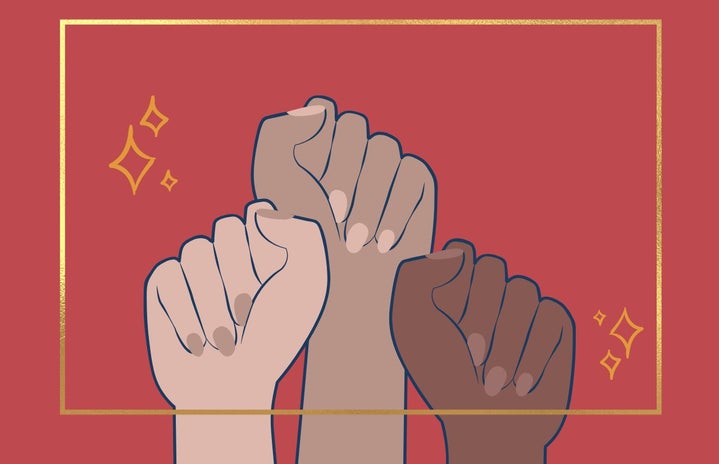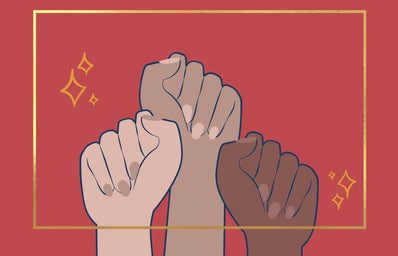In Western democracy, women’s rights have greatly advanced in the last century and a half; however, once overlooking the guise of equality, it is clear that women continue to battle inequity with their finances, treatment in society, and overall experience as a world citizen. In many Middle Eastern countries, this remains true and many basic universal rights that are in theory guaranteed to Western women are not considered. To be a culturally and politically aware individual, one must understand the hardships that women face beyond the West, so we may continue to advocate on their behalf in the international system. Below are five countries in the Middle East and the status of women’s rights within the state. (Trigger Warning: topics such as sexual assault and violence against women are discussed)
- Saudi Arabia
-
Women in Saudi Arabia, a superpower in the Arabian Peninsula, face an almost complete absence of rights and equality to their male counterpart. Women are not allowed to travel or be issued a passport without their male guardian’s approval. Furthermore, they are not authorized to leave their homes without permission from a male guardian and have been known to receive a court ordered forcible return.
Child marriages and forced arrangements also prevail, some of which lead to cases of domestic violence. Over 35% of women have faced violence in some way with the extraneous circumstances even reaching the point where women did not earn the right to drive until 2018.
- Egypt
-
In Egypt, the sexual harassment of women far surpasses the rates of other Arab and Middle Eastern states, with a 2013 report by the UN stating that over 99.3% of Egyptian women faced some form of sexual harassment. Amidst this, domestic violence and marital rape are within one of the issues most prominently affecting women in the country.
Human trafficking has grown to be a large threat for Egyptian women, with the numbers rising outside of larger cities such as Cairo where independent groups are increasingly gaining revenue from this.
Inequality in the workforce persists, as Egypt’s reliance on gender-based roles has pushed women to struggle to find employment even after pursuing high education. Female genital mutilation is still practiced, with over 92% of women having had a circumcision between the ages of 15-49.
- Iraq
-
While the Iraqi constitution ascertains equality between men and women, the alarming high rates of illiteracy among women exhibits a much harsher reality. Certain penal codes within the country allow for a sexual offender to avoid prosecution if they marry their victim, making it no longer a crime. Additionally, key laws present that crimes are not committed when one is defending their legal rights, making the punishment of a wife by a husband legal by this standard.
In Iraq, women are further pushed to assume the social/gender roles of a modest, virtuous wife; thus, many women may struggle to receive help when they are a victim of gender based violence of sexual assault. There is very little institutional support, and cases where girls and women may be raped or assaulted may never be addressed as families believe it brings ‘shame’ to their household.
Many men may engage in honor killing against a woman in order to feel a sense of justice in removing someone who brough dishonor to their household. Over 4,000 women and girls in 2001 were victim to this dangerous, misogynistic mindset.
- Syria
-
Much like Iraq, women in Syria also face similar conditions. However, the situation in Syria represents a much more complex environment, as the presence of ISIS and Jabhat al-Nusra clashes with the official Syrian government. Terrorist groups continue to enforce their own standalone ordinances by monitoring what women are allowed to wear and do in pubic in their occupied areas.
With the Syrian civil war, women’s place in society is largely threatened by the refugee crisis that has displaced million of individuals within the country. Even before the conflict, many Syrian women were and continue to be victims of gender based violence in the form of sexual assault, forced marriage, and honor killings. With no access to real legal or institutional help, many women will never achieve any sense of justice.
With the conflict in the country, there is a continued lack of access to healthcare and medical treatment as governmental or external actors target hospital and care facilities. Also, Syrian nationality can only be passed down from a father or male, while women do not receive equal recognition in the eyes of the law and cannot pass down a nationality to a child.
- Yemen
-
Similar to Syria, Yemen continues to be entrenched in armed conflict, a fact that continues to worsen women’s rights in the country. Many women have reported attacks and harassment at military checkpoints if they are unaccompanied by a male.
Yemen society is deeply patriarchal and retains laws that allow girls to be forcibly married under the age of 18, justify honor killings, and perpetuate gender-based violence and discrimination. Since 2014 and the Houthi takeover, the country remains deep in a humanitarian crisis with many women (and men) having a lack of access to healthcare.
According to the World Economic Fund, only 35% of women in Yemen are literate and only a staggering 40% continue to secondary education. In the labor force, women only account for 6.3%. These shocking statistics present the deep-seeded issue of inequality that persists within the Middle Eastern state.
Women’s rights continue to falter across many different regions of the world. It is increasingly important to be remain aware and advocate on the behalf of all women, regardless of age, race, geographical location, religion, or ethnicity. While systemic issues persist within the five countries listed above, it is continually important to further down the path of activism, and if capable, donate in the form of supplies or funds. Simply being aware of these issues and starting conversations with friends, families, and classmates allows for the first steps in marking some change that can help to work towards a better future for ALL women, both near east and abroad.



